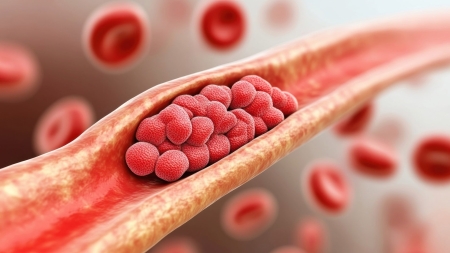When the heart is out of rhythm
Heart rhythm disorders (cardiac arrhythmia) are common, but the people affected often do not even realise it. This may be accompanied by sudden palpitations, a loss of energy or excessive tiredness.

What is cardiac arrhythmia?
Cardiac arrhythmia is the term used to describe when the heart beat is out of sync. Under normal circumstances, the heart beats regularly and at a pace that is adapted to the strain placed on it – slower at rest and faster during physical exertion or excitement. However, in the case of cardiac arrhythmia, heart beats become irregular, they are too slow, too fast or the next heartbeat occurs prematurely.
How does cardiac arrhythmia manifest itself?
Cardiac arrhythmia can be permanent or intermittent. Sometimes the person affected will notice it themselves because of an irregular pulse or sudden palpitations. Many people, however, do not realise that they have arrhythmia. Others only notice it in specific situations, for example when they are physically active. If left untreated, cardiac arrhythmia can result in a range of symptoms, such as reduced energy levels, fatigue, shortness of breath, dizziness or even losing consciousness. The most dreaded of these are strokes and sudden deaths.
What are the causes of cardiac arrhythmia?
Problems with the heart’s electrical signals which control the beating of the heart muscle, birth defects, damage to the coronary arteries, high blood pressure that is not treated properly, certain medications or other circumstances can damage the heart and disrupt its rhythm.
Is cardiac arrhythmia dangerous?
It depends on the type of arrhythmia. Some types are very dangerous and can prove fatal within a matter of minutes, while others can be managed by those affected or only occur in certain situations.
Is cardiac arrhythmia a precursor to a heart attack?
A heart attack is not typically preceded by cardiac arrhythmia. However, cardiac arrhythmia is a common complication following a heart attack. A heart attack is usually caused by a blocked artery in the heart that obstructs the flow of blood. If this persists, part of the heart muscle dies. This in turn can induce cardiac arrhythmia.
Can stress trigger cardiac arrhythmia?
Yes. If the patient is predisposed to it, stress, emotional distress or even a sudden fright can result in cardiac arrhythmia.
What is the most common type of cardiac arrhythmia?
Atrial fibrillation, which occurs when the heart muscle around the heart’s upper chambers (atria) no longer contracts in a coordinated manner. Instead, the atria continue to pump blood inefficiently and in an uncoordinated manner. The consequences: the heart’s ability to pump blood drops and blood is no longer transported properly. Blood clots can form, which are then conveyed into the brain in the bloodstream where they obstruct a vessel, leading to a stroke. To prevent this, those affected are prescribed a blood-thinning medication.
Doesn’t everyone “skip a beat” or have heart palpitations at some stage in their lives?
Yes, even healthy people can “skip a beat” from time to time. However, the heart then immediately returns to its normal rhythm.
When should you see a doctor?
You should consult a doctor if you notice an irregular pulse or heartbeat or if you develop symptoms such as those described above. In the case of vascular damage to the heart or other forms of heart disease, it is recommended to have a regular heart check-up.
How do doctors detect cardiac arrhythmia?
One key instrument for diagnosing it is an ECG, which measures the heart’s electrical currents. If irregular cardiac arrhythmia is suspected, portable devices that enable measurements to be taken over several days are also useful. If the cause of a stroke or loss of consciousness is unknown, a device can also be implanted under the skin that can monitor the heart’s rhythm continuously for three years, after which the device can be removed.
How is cardiac arrhythmia treated?
Depending on the type of cardiac arrhythmia, medication, a pacemaker or a defibrillator can be used to restore the heart’s normal rhythm. In the case of atrial fibrillation, for example, it can help to lose excess weight, stay physically fit and avoid alcohol. Catheter ablation is used to treat the heart’s electrical signalling system that is sending false signals. This is done with the help of a catheter, which is inserted through the groin and threaded into the ventricles.
What are the benefits of fitness trackers, apps or smartwatches for heart health?
There have been cases where special smartwatches or other mobile digital devices have detected atrial fibrillation or angina pectoris. These devices can record a mini ECG by measuring a person’s pulse and heart rate. Although they can never be a substitute for a doctor, they can provide valuable information. Fitness trackers are helpful because they encourage people to take more exercise – which is good for the heart. They measure how fast the heart is beating during a training session.


